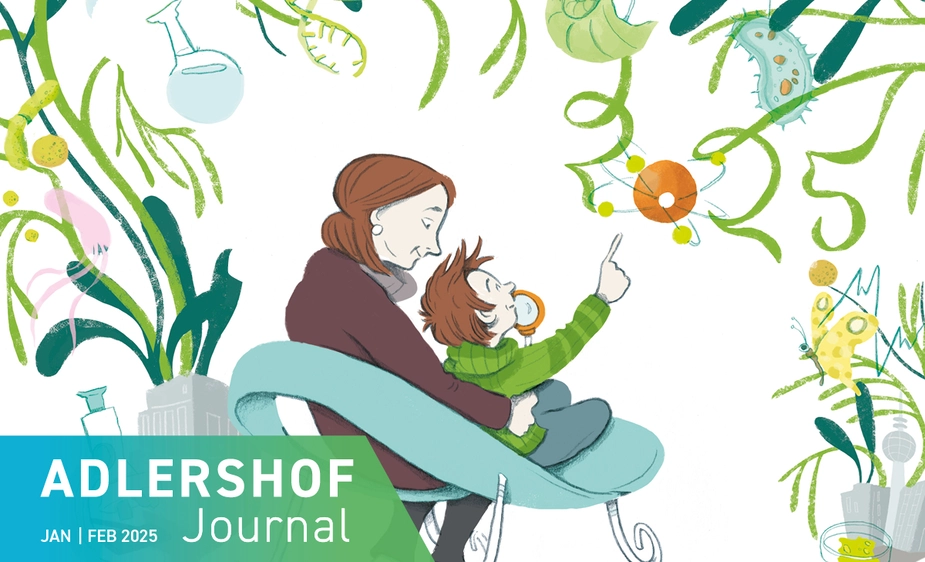Tomorrow, children, joy awaits!
Essay by Matthias Gerschwitz, communications specialist and book author
‘I like to watch’ is one of cinema’s legendary lines. In the 1979 US satire Being There, Peter Sellers stars as Chance, a gardener who has spent his entire life on a wealthy man’s estate. The world beyond the garden walls is unknown to him, except through the television. His only constant is nature: The steady cycle of growth and passing, the change of seasons, and the symbiosis of flora and fauna. When his employer dies, Chance must leave the estate. By chance, as it were, he encounters a successful married couple who, misunderstanding his naïveté, introduce him to high society. Asked about his favourite pastime, he responds with the phrase, ‘I like to watch.’ Some guests interpret this as erotic voyeurism, while others find profound wisdom in his guileless botanical metaphors, increasing his social status. Thus, a misunderstanding turns him into an unexpected hero.
Sometimes, I wish for more such misunderstandings. Observing nature and drawing insights from its processes often leads to fresh perspectives in research. To leave the beaten track, one doesn’t have to reinvent the wheel. Taking the time to observe—liking to watch—can reveal how improving individual steps might be simpler than rethinking an entire process.
Let Chance be a role model to us. There’s plenty in the natural world that can teach us wisdom and insight—and lend substance to the often-hollow rhetoric of protecting the environment. For instance, the idea that something new can emerge from decay. Or the realisation that nurture and care are indispensable to be able to give new things a realistic chance to emerge. Above all, we need to finally understand—as an ultima ratio, as it were—that nature will only abandon us if we abandon it.
It wasn’t long ago and the term ‘renewable resources’ could be heard everywhere. Hardly any detergent or cleaning product brand missed the chance to tout sustainability as their advertising message. Yet as quickly as the concept flooded public consciousness, it was replaced by the next marketing message. Renewable resources are hardly new—nature, after all, predates humanity. Even the Bible tells us Adam and Eve lived in a paradise they didn’t have to replant. No need for reforestation there. How much time have humans spent since then trying to synthetically replicate natural processes, only to later puzzle over how to replace synthetic materials with renewable resources?
There’s one renewable resource we rarely view through an ‘I like to watch’ lens: the next generation of humans. It’s unfortunate because this is where observing, identifying, and nurturing abilities and talents would be particularly fruitful. The potential of the next generation can only be realised if they are given what they need to thrive. And so: Tomorrow, children, joy awaits—the chance to rise to the challenges of the future.
Matthias Gerschwitz is a communications specialist and book author and supports the research network IGAFA e. V. with a number of projects.
www.matthias-gerschwitz.de
